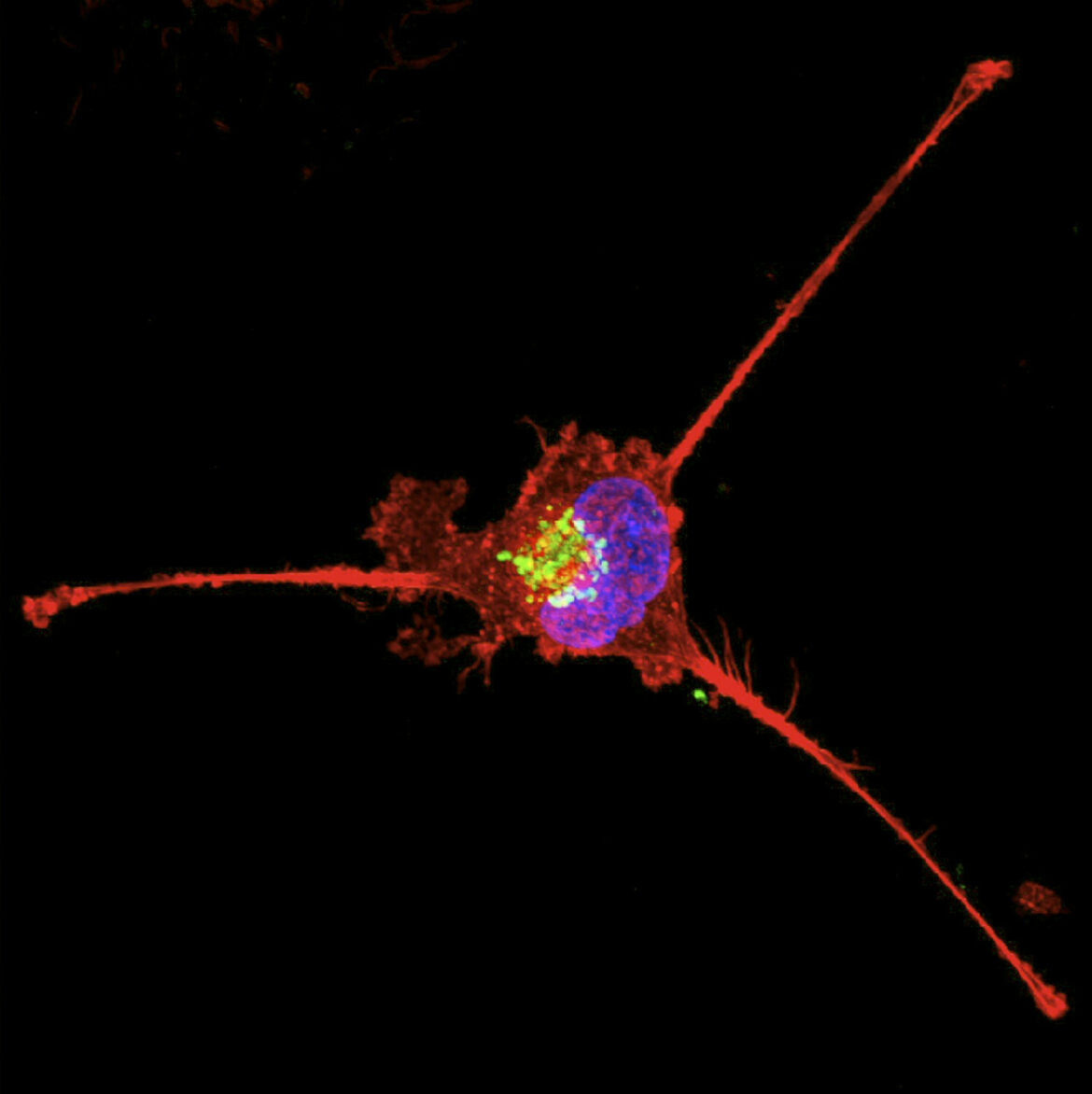Researchers led by Damian Kulaga from the Faculty of Chemical Engineering and Technology at the Kraków University of Technology are working on new chemical compounds that could help in the fight against triple-negative breast cancer. The scientists are working out the substance which may become part of a targeted drug that will be used in chemotherapy to precisely hit the receptors of cancer cells and block their proliferation.
“Such targeted therapy will be more effective and safer for the patient than currently used chemotherapeutics”, announces Damian Kulaga. His project is being carried out in cooperation with the Institutes of Pharmacology of the Polish Academy of Sciences (PAN) in Krakow and the Immunology and Experimental Therapy of the PAN in Wrocław. It has received nearly PLN 1.5 million under the ‘Leader’ programme of the National Centre for Research and Development.
Breast cancer is the most frequently diagnosed type of malignant tumour among women. Its triple-negative subtype TNBC (Triple-Negative Breast Cancer) is an extremely insidious form of the disease. Detected in approximately 10-15 % of patients, it has a high recurrence rate and a higher risk of distant metastasis.
Triple-negative breast cancer cells do not have the same well-recognised Achilles heels as other breast cancer variants”, points out Damian Kulaga.
That is why scientists from the Faculty of Chemical Engineering and Technology at PK and institutes of the Polish Academy of Sciences are directing their search in a non-obvious direction.
“While many research groups, when developing new molecules, focus on typical, known molecular targets, we decided to target a protein that so far has not been associated with oncology, but rather with diseases of the central nervous system”, reveals Damian Kułaga.
The new compounds are currently being synthesised and their anticancer potential tested.
Adrian Andrzejewski





